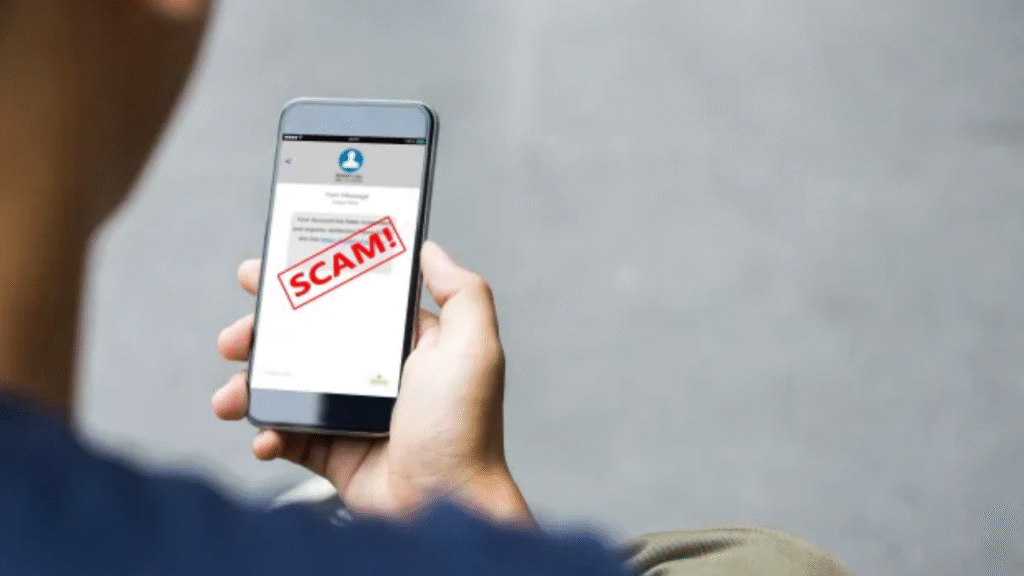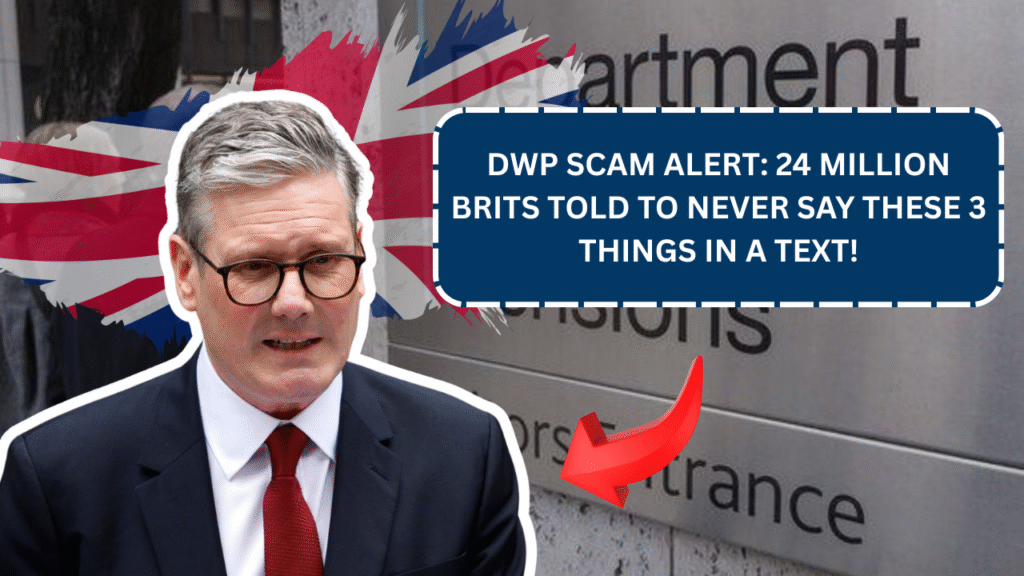The Department for Work and Pensions (DWP) has issued a crucial warning to over 24 million benefit recipients in the UK, urging them to stay vigilant against a rising wave of sophisticated scam messages. Fraudsters are impersonating the DWP via text messages in an attempt to steal sensitive personal and financial information — and knowing what not to do could save you from being scammed.
These fake texts often claim to offer cost of living payments, winter fuel support, or other DWP benefits, and then prompt users to click on a link or provide private information. But the DWP has made it clear — they will never ask for three key things via text.
The 3 Things You Should NEVER Say in a Text
According to the DWP and financial experts like Martin Lewis’ MoneySavingExpert (MSE), recipients should never provide the following information through text messages:
- Bank Account or Card Numbers
Scam messages might say your payment was declined and ask you to re-enter your bank details. Do not fall for it. - National Insurance Number
This is often requested to “verify your identity” another red flag. This information can be used to commit identity theft. - Passwords or Login Details
You may be asked to log in to what looks like a government website, but it’s a phishing page designed to steal your credentials.
If a message includes a link or urgent instructions that seem suspicious, do not click, and do not respond.

What Do These Scam Messages Look Like?
These scam texts often use official-sounding language, logos, and fake links to trick claimants. They might say:
You are eligible for a £300 cost of living payment. Confirm your bank details here.”
DWP: You missed a benefit payment. Click the link to claim now.
These messages are not from the DWP. Clicking the link could lead you to a phishing site designed to harvest your private information.
How to Protect Yourself
The DWP, along with cybersecurity experts and mobile providers, has issued key steps for claimants to stay safe:
- Do not click links in unsolicited text messages that claim to be from the DWP.
- Do not reply with personal info like bank details, National Insurance number, or login credentials.
- Always verify messages by checking the official government website:
- Report scam texts by forwarding them to 7726 — a free number that helps mobile networks investigate fraud.
- Contact your bank immediately if you believe you’ve shared personal details in a scam.
Why This Warning Matters Now
The warning comes as millions of people are receiving cost-of-living support and benefit top-ups, making it a prime time for scammers to strike.
With many households relying on DWP benefits like Universal Credit, Pension Credit, and Disability Living Allowance, the fake messages can seem urgent and legitimate — especially when money is tight.
Martin Lewis’ team at MoneySavingExpert recently highlighted a winter fuel scam that looked exactly like an official message, urging recipients to apply via a malicious link. The article urges everyone to “spread the word” about these scams to protect vulnerable individuals.
Who’s Most at Risk?
People who receive the following benefits are common targets:
- Universal Credit
- State Pension
- Disability Living Allowance
- Personal Independence Payment (PIP)
- Attendance Allowance
- Carer’s Allowance
- Income Support
Scammers often target older people and those unfamiliar with digital communication tools. Families and carers should stay alert and help others recognize fake messages.
What the DWP Says
The DWP emphasized:
“We will never ask for personal or financial information via text or email. If you receive such a message, assume it’s a scam and report it.”
They encourage anyone with doubts to contact the DWP directly through https://www.gov.uk or the Jobcentre Plus helpline listed above
Conclusion
As scams targeting benefit claimants continue to rise, staying alert is more important than ever. The DWP’s warning serves as a strong reminder that government departments will never ask for sensitive information like bank details, National Insurance numbers, or passwords via text message. If you receive any suspicious message claiming to be from the DWP, do not respond, do not click any links, and report it immediately..


